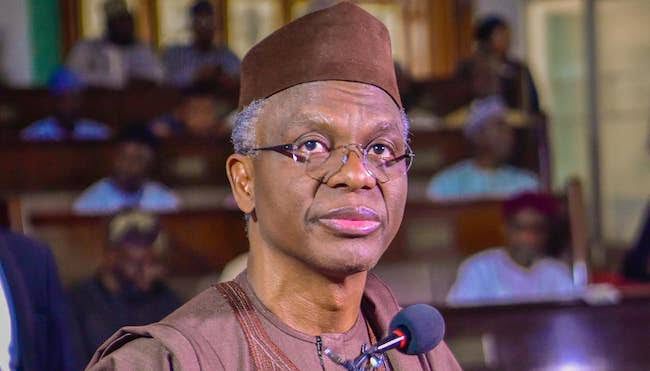Former Kaduna State Governor, Nasir El-Rufai, has come under intense criticism after making comments that many Nigerians consider contradictory during his appearance on Channels Television’s Politics Today with Seun Okinbaloye on Sunday.
In the interview, El-Rufai strongly criticized President Bola Tinubu’s administration, declaring that two years into its tenure, the government had worsened the nation’s economic and security challenges. He described the current administration as a “failure,” insisting that Nigerians were not feeling the promised relief from reforms such as the fuel subsidy removal.
“It is fair to call this government a failure,” El-Rufai said. “After two years, things are worse, not better. We are the voters, we are the judge.”
The former governor went further to predict that Tinubu would lose the 2027 presidential election, even suggesting that after doing a personal analysis, the current president’s best position after the elections are concluded would be a distant third. He stressed that governance is not just about announcing reforms but about ensuring citizens feel tangible improvements in their daily lives.
However, in the same interview, El-Rufai reiterated his long-standing position that four years is not enough to achieve meaningful change in Nigeria. Earlier on, he had dismissed the idea of “one-term pledges” by politicians like Peter Obi and Rotimi Amaechi, arguing that the enormity of Nigeria’s problems requires longer timelines to implement reforms.
“You cannot make meaningful change in four years,” he noted, warning against politicians making promises they cannot fulfil. He further stressed that his knowledge on the matter arises from his various stints in government as Director General of the Bureau of Public Enterprises (1999-2003), Minister of the Federal Capital Territory (2003-2007) and finally, as Governor of Kaduna State (2015-2023).
This apparent contradiction – faulting Tinubu for poor performance in just two years while simultaneously insisting that even four years is too short for meaningful reforms – has triggered a wave of backlash. Critics accuse El-Rufai of contradiction, suggesting that he is using shifting arguments to discredit the current administration.
Supporters of the former governor, however, defend him, arguing that his point was not about complete transformation within two years, but about showing a clear sense of direction and measurable progress, which he claims the Tinubu-led administration has failed to do.
The controversy contributes to the growing debate about Nigeria’s leadership, as the Tinubu administration approaches the halfway mark of its first term amid high inflation, hardship, and insecurity. El-Rufai’s remarks, whether contradictory or not, have amplified scrutiny on the government’s ability to deliver on its promises before 2027.
Samuel Aina

